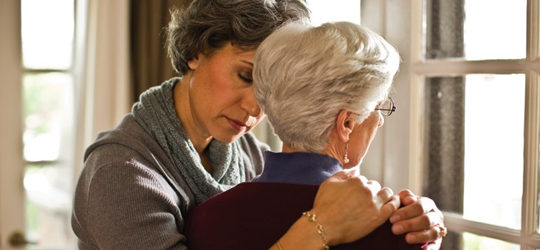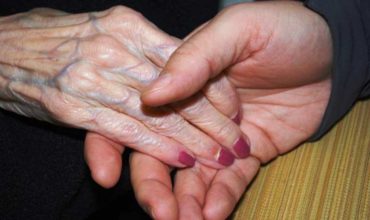Are you an informal or family caregiver for an elderly person? If you are, you are not alone.
Most Americans will be informal caregivers at some point during their lives. Each year more than 44 million Americans (21% of the adult population) provide unpaid care to an elderly or disabled person 18 years or older. This is significant! It represents 80 percent of all long-term care in the United States.
Most caregivers are middle-aged or older women who have jobs outside of caring for an elderly person. Most of these women have changed hours or working conditions in order to care for their elderly family member.
Sound stressful? It is.
Take our caregiver stress questionnaire to see if you are under too much stress, and see if our suggestions can help you!
Survey Questions:
- Do you feel frustrated and angry while you take care of someone?
- Do you feel guilty about the care you can provide because you have so many other things to do?
- Do you feel that care giving has hurt your social life?
- Are you exhausted when you go to bed at night?
- Do you feel overwhelmed?
- Have you recently gained or lost a lot of weight?
- Have you lost interest in activities you used to enjoy?
- Are you easily irritated or angered?
- Are you constantly worried?
- Are you often sad?
- Do you experience frequent headaches, bodily pain, or other physical problems?
- Do you abuse of alcohol or drugs, including prescription drugs?
Scores:
- 0-3 low stress level
- 4-7 medium stress level
- 8-12 high stress level
Ways to Reduce Caregiver Stress
Focus on the rewards of care giving, and giving back to a loved one. Being a caregiver strengthens your relationship with the person receiving care and makes you feel needed, boosting your self-confidence.
Make sure you are at your best:
- Get your prescriptions filled
- Keep your own doctor and dentist appointments
- Eat healthy meals
- Get enough sleep
- Exercise vigorously at least 45 minutes each day
- Do something just for yourself at least once a week.
Talk to a counselor, psychologist, or other mental health professional right away if your stress leads you to physically or emotionally harm the person you are caring for.
Find out how to deal with your loved one’s disease. This will help you take a positive approach to the daily questions and issues you will be presented with. You may be able to find a hospital or local agency on aging that offers classes on caring for people with that disease. Do research with doctors, nurses, on websites, and at the library. The more information you have, the easier it will be to prepare for issues that arise.
If you do find that you are under stress from caring for your loved one, try these stress reducing tips:
- Get help from community care giving service providers for:
- transportation
- meal delivery
- home health care services
- non-medical home care services
- home modification for easier daily tasks
- legal and financial counseling
- Accept help from friends and family – this includes financial help.
- Say “no” to volunteer tasks, such as hosting holiday meals.
- Do the best you can and don’t feel guilty about not being perfect.
- Prioritize your tasks and establish a daily routine.
- Stay in touch with family and friends.
- Join a support group for caregivers facing the same condition or disease.
- Try to keep your sense of humor.
Check with the human resource office at your job. Employees covered under the federal Family and Medical Leave Act may be able to take up to 12 weeks of unpaid leave per year to care for relatives.
Perhaps you will feel better about your loved one’s safety if you purchase an emergency or surveillance device. These devices include emergency response systems (not for people with dementia), intercom systems, web cams and mobility monitors. These devices can help with your peace of mind.
When you need a break (and you will), give a professional home care service a call. They will come to your loved one’s home and perform any number of household chores, personal grooming chores, and provide companionship for your loved one for a very affordable fee.
This article is brought to you by Visiting Angels of Milwaukee, providing care and assistance to Milwaukee County residents for over 14 years! Please contact us via email at gdilles@visitingangels.com, call 414.476.0025 or visit our website at www.VisitingAngels.com/Milwaukee






